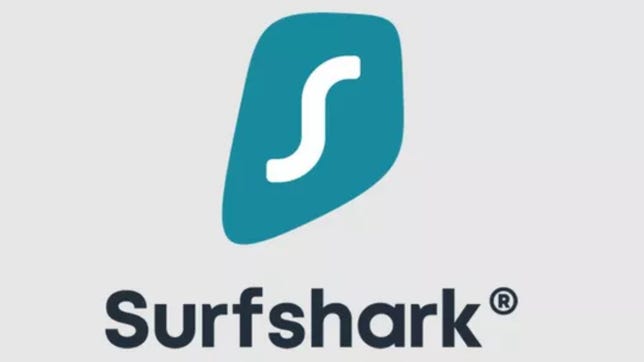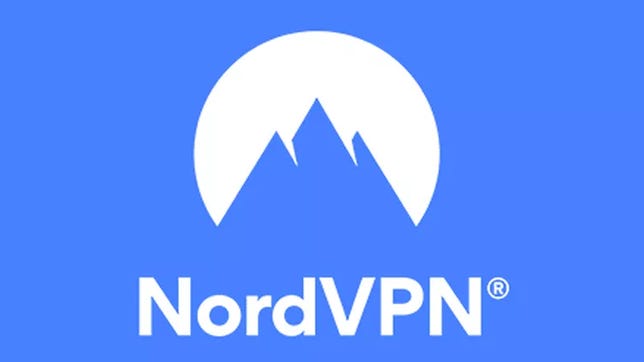If you have an Android device and you don’t like the idea of your phone or apps giving away your geolocation data around the clock, using a reliable and well-tested VPN is a good idea. Will using a VPN get rid of all your privacy headaches? Definitely not. But the best Android VPN will provide you with whole-device protection so that your internet service provider can’t view your browsing activity or app usage, Google can’t see your geolocation, and your other apps’ owners can’t see what you’re doing outside of their app. And that kind of protection is enough to stop you from being low-hanging fruit in an era of constant surveillance and an increasing risk of data breaches.
Android-specific VPN downloads accounted for about 75% of the mobile VPN surge over the past few years, according to the most recent trend reports. Over 480 million mobile VPN apps were downloaded around the globe in just 12 months between 2019 and 2020, according to research firm Top10VPN. That’s 54% more than the year before. While free services accounted for 84% of all mobile VPN downloads, we recommend you avoid using a free Android VPN whenever possible and instead stick with a tried-and-true paid VPN. It’s not about promoting premium services; it’s about safety. In the murky world of VPNs, you really do get what you pay for.
But if you’re trying to save money or you just need a temporary VPN on your Android device, we advise you to test-drive one of our recommended providers with a 30-day money-back guarantee. It’s not the same as a permanently free VPN, but most premium VPN providers are more than willing to give you a sample of their goods to prove their service is worthy of a long-haul annual subscription.
While CNET’s directory of the best VPN services ranks these apps and others by how well they held up during the testing and evaluation process, this list specifically focuses on the mobile offerings of each VPN provider. CNET regularly tests and evaluates new VPN apps — so be sure to check back here as new contenders emerge. Here are the best Android VPN options we’ve tested.
Read more: You Need to Be Using a VPN on Your Phone. Here’s How to Set it Up in Under 10 Minutes

 \n ","topic":"","ttag":"","searchDim":"article-body|listicle|image","variant":"article-body|listicle|image","viewguid":"","event":"listicle|image|1","correlationId":"","_destCat":"https:\/\/go.expressvpn.com\/c\/159047\/1330033\/16063?&sharedId=cnet&u=https%3A%2F%2Fwww.expressvpn.com%2F&subId1=subid_value","productName":"ExpressVPN","formatType":"IMAGE","location":"LIST","position":1,"sku":"CNETExpressVPN","dwLinkTag":"article-body|listicle|image","selector":"#article-body #listicle-dfe75bb5-bfc2-4e9c-ada8-3af7b2e64ab9 .itemImage","shortcodeId":"dfe75bb5-bfc2-4e9c-ada8-3af7b2e64ab9","shortcodeType":"listicle","vendor":"ExpressVPN","manufacturer":"ExpressVPN","coupon":"49% off with 12-mo plan (+3 free months)","productPrice":"","quantity":""}}” rel=”noopener nofollow” target=”_blank”>
\n ","topic":"","ttag":"","searchDim":"article-body|listicle|image","variant":"article-body|listicle|image","viewguid":"","event":"listicle|image|1","correlationId":"","_destCat":"https:\/\/go.expressvpn.com\/c\/159047\/1330033\/16063?&sharedId=cnet&u=https%3A%2F%2Fwww.expressvpn.com%2F&subId1=subid_value","productName":"ExpressVPN","formatType":"IMAGE","location":"LIST","position":1,"sku":"CNETExpressVPN","dwLinkTag":"article-body|listicle|image","selector":"#article-body #listicle-dfe75bb5-bfc2-4e9c-ada8-3af7b2e64ab9 .itemImage","shortcodeId":"dfe75bb5-bfc2-4e9c-ada8-3af7b2e64ab9","shortcodeType":"listicle","vendor":"ExpressVPN","manufacturer":"ExpressVPN","coupon":"49% off with 12-mo plan (+3 free months)","productPrice":"","quantity":""}}” rel=”noopener nofollow” target=”_blank”>


ExpressVPN
- Latest tests: No leaks detected, 2% speed loss in spring 2022 tests
- Network: 3,000-plus servers in 160 locations across 94 countries
- Jurisdiction: British Virgin Islands
- Price: 5 simultaneous connections for $13 per month, $60 for six months or $100 for a year (current discount: 3 months free). 2-year subscriptions available.
Despite battling major upheavals through the end of 2021, ExpressVPN clinched our Editor’s Choice Award for best VPN in 2022. One of the two largest providers globally, the VPN titan has been in business since 2009 and once again aggressively raised the industry bar for service transparency this year.
In the past year, ExpressVPN increased its independent third-party audit count, published details about its TrustedServer deployment process, joined the i2Coalition to call for improved VPN industry ethics, and released an open source Lightway encryption protocol.
After a setback in 2020, ExpressVPN is again currently in first place as the fastest VPN we’ve tested. While most VPNs will cause you to lose half or more of your normal internet speeds, ExpressVPN caused us to lose just 2% of speeds in our 2022 speed tests. It also unblocks Netflix and other streaming services more reliably than most other VPNs, and seamlessly surpasses geo-blocking for access to international gaming servers and torrenting sites.
Lightway’s flexible nature allows it to take on both TCP and UDP connections, seamlessly balancing speed and stability. It’s a brilliant choice for a default protocol on Android devices, since it’s so responsive to varying connection types and strengths.
All of our top-rated VPNs have wide compatibility across platforms and operating systems, but ExpressVPN’s collection of setup guides, detailed FAQs and troubleshooting articles give it a clear advantage for users. So do its round-the-clock customer support and its no-questions-asked, 30-day money-back guarantee.
While you can get a better month-to-dollar bargain with ExpressVPN’s two-year subscription, we don’t recommend anyone purchase any two-year VPN subscriptions at this time due to overall market volatility. ExpressVPN’s best plan offers five simultaneous connections for $100 a year (which includes three extra months, for a limited-time deal totaling 15 months of service). You can also opt for a $13 monthly plan, or pay $60 for six months.

 \n ","topic":"","ttag":"","searchDim":"article-body|listicle|image","variant":"article-body|listicle|image","viewguid":"","event":"listicle|image|2","correlationId":"","_destCat":"https:\/\/get.surfshark.net\/aff_c?offer_id=778&aff_id=1511&source=CNET&aff_sub=[subid_value]&aff_sub2=bestandroidvpn","productName":"Surfshark VPN","formatType":"IMAGE","location":"LIST","position":2,"sku":"CNETSurfshark VPN","dwLinkTag":"article-body|listicle|image","selector":"#article-body #listicle-3cb69b09-9caf-497d-8294-4a73f08e6c1d .itemImage","shortcodeId":"3cb69b09-9caf-497d-8294-4a73f08e6c1d","shortcodeType":"x-listicle","vendor":"Surfshark","manufacturer":"Surfshark VPN","coupon":"84% off with 24-mo plan (+2 free months)","productPrice":"","quantity":""}}” rel=”noopener nofollow” target=”_blank”>
\n ","topic":"","ttag":"","searchDim":"article-body|listicle|image","variant":"article-body|listicle|image","viewguid":"","event":"listicle|image|2","correlationId":"","_destCat":"https:\/\/get.surfshark.net\/aff_c?offer_id=778&aff_id=1511&source=CNET&aff_sub=[subid_value]&aff_sub2=bestandroidvpn","productName":"Surfshark VPN","formatType":"IMAGE","location":"LIST","position":2,"sku":"CNETSurfshark VPN","dwLinkTag":"article-body|listicle|image","selector":"#article-body #listicle-3cb69b09-9caf-497d-8294-4a73f08e6c1d .itemImage","shortcodeId":"3cb69b09-9caf-497d-8294-4a73f08e6c1d","shortcodeType":"x-listicle","vendor":"Surfshark","manufacturer":"Surfshark VPN","coupon":"84% off with 24-mo plan (+2 free months)","productPrice":"","quantity":""}}” rel=”noopener nofollow” target=”_blank”>


Surfshark
- Latest tests: Zero data leaks and 19% internet speed loss in fall 2022 tests
- Network: 3,200-plus in 99 countries
- Jurisdiction: Netherlands
- Price: Unlimited connections for $48 for the first year (then $60 annually) or $13 per month. 2-year subscriptions available.
Surfshark boasts an impressive suite of privacy and security features, unlimited simultaneous connections, easy-to-use interface and expansive global network. And it’s still significantly cheaper than most of its competitors. That’s what helped Surfshark earn CNET’s Editors’ Choice for Best Value VPN in 2022.
Along with standard VPN features such as a kill switch and DNS leak protection, some of the more notable Surfshark features include camouflage mode (which hides the fact you’re using a VPN), split-tunneling, NoBorders mode (which lets you use Surfshark in regions where VPNs are restricted) and multihop VPN connections. You’ll also get access to Surfshark’s CleanWeb technology, which blocks ads and malware and helps you avoid phishing attacks.
One innovation we’re excited to see Surfshark roll out over the next year is its Nexus network, which connects the VPN’s entire network of servers together and allows you to choose multiple servers to route your connection through. The functionality is somewhat similar to Tor, but Surfshark says it’s faster. With its Dynamic MultiHop, IP Randomizer and IP Rotator functions, the Nexus network can give you a few extra layers of protection while you use the VPN — which can be particularly beneficial to users with critical privacy needs.
Surfshark says it doesn’t log any user activity. And although no-logging claims are virtually impossible to prove with 100% certainty, German cybersecurity firm Cure53 declared Surfshark’s security to be “solid” in its 2021 security audit of the VPN. Surfshark says a new audit is forthcoming by the end of this year.
As of February 2022, both Surfshark and NordVPN have the same corporate parent (Tesonet), but Surfshark said it is legally bound not to share any information between the entities that would go against its privacy policy or terms of service. We didn’t find any language in either document that would indicate Surfshark has any obligation to share user data with its parent company or any sibling companies, which include NordVPN.
Surfshark rates consistently as one of the fastest VPNs available, which is why we were surprised that one of the only issues we had with Surfshark came in our speed test. While it still ranks as one of the fastest VPNs we’ve tested — with an internet speed loss of just 19% — we were disappointed with the inconsistent speed results we got to certain locations. Speeds to Europe and Singapore were erratic (dipping as low as 9Mbps to Singapore), while speeds to New York were slower than speeds to the UK and even Australia. Surfhark is in the process of significantly expanding its server network, now offering more than 3,200 servers in 99 countries. The continued expansion of its server network could potentially help bring some more consistency to the VPN’s speeds.
In our tests, Surfshark had no problems unblocking Netflix and Amazon Prime Video content, but we did run into a fair bit of trouble accessing Disney Plus. After testing various servers in the US and other countries where Disney Plus is available, we were finally able to access the content when we connected to a server in Boston. You may need to test a few servers yourself before gaining access to Disney Plus content with Surfshark.
Surfshark offers cheaper introductory prices that jump after the first billing cycle. Even so, Surfshark manages to keep its prices lower than most other VPNs — helping it earn CNET’s Editors’ Choice for Best Value. The yearly plan starts out at $48 for the first year, then jumps to $60 for any additional years of service. If you opt for the two-year plan, you’ll pay $60 up front for the initial two years combined, then $60 per year for any additional years. Surfshark’s monthly plan stays constant at $13 a month. If you’re not satisfied with the service for any reason, Surfshark offers a 30-day money-back guarantee.

 \n ","topic":"","ttag":"","searchDim":"article-body|listicle|image","variant":"article-body|listicle|image","viewguid":"","event":"listicle|image|3","correlationId":"","_destCat":"https:\/\/go.nordvpn.net\/aff_c?offer_id=378&aff_id=307&source=CNET&aff_sub=[subid_value]&aff_sub2=bestandroidvpn","productName":"NordVPN","formatType":"IMAGE","location":"LIST","position":3,"sku":"CNETNORDVPN","dwLinkTag":"article-body|listicle|image","selector":"#article-body #listicle-28f013dd-2f13-4b32-a3b4-00ddfd02233c .itemImage","shortcodeId":"28f013dd-2f13-4b32-a3b4-00ddfd02233c","shortcodeType":"listicle","vendor":"NordVPN","manufacturer":"NordVPN","coupon":"68% off with 24-mo plan (+3 free months)","productPrice":"","quantity":""}}” rel=”noopener nofollow” target=”_blank”>
\n ","topic":"","ttag":"","searchDim":"article-body|listicle|image","variant":"article-body|listicle|image","viewguid":"","event":"listicle|image|3","correlationId":"","_destCat":"https:\/\/go.nordvpn.net\/aff_c?offer_id=378&aff_id=307&source=CNET&aff_sub=[subid_value]&aff_sub2=bestandroidvpn","productName":"NordVPN","formatType":"IMAGE","location":"LIST","position":3,"sku":"CNETNORDVPN","dwLinkTag":"article-body|listicle|image","selector":"#article-body #listicle-28f013dd-2f13-4b32-a3b4-00ddfd02233c .itemImage","shortcodeId":"28f013dd-2f13-4b32-a3b4-00ddfd02233c","shortcodeType":"listicle","vendor":"NordVPN","manufacturer":"NordVPN","coupon":"68% off with 24-mo plan (+3 free months)","productPrice":"","quantity":""}}” rel=”noopener nofollow” target=”_blank”>


NordVPN
- Latest tests: No leaks detected, 13% speed loss in summer 2022 tests
- Network: 5,600-plus servers in 84 locations across 59 countries
- Jurisdiction: Panama
- Price: 6 simultaneous connections for $12 per month or $60 for a year (current discount: 3 months free). 2-year subscriptions available.
NordVPN is one of the most recognized brands in the VPN field. Part of that brand recognition is based on its distinct, straightforward design. Nord’s app for Android is just as easy to interact with as its desktop VPN client, with a similar design. It poses no learning difficulties for a first-time user looking to move from desktop to mobile.
Just as the desktop client does, Nord’s app opens to a familiar blue-scale landing-screen map where users can opt to either select a country, connect to the fastest server automatically or browse specialty servers like Onion over VPN, Double VPN or those optimized for P2P. Nord gets bonus points for its split-tunneling feature, which allows you to select other apps that you don’t want to run through your encrypted VPN connection.
The VPN service provider offers a generous simultaneous connection count, with six connections allowed through its network — nearly all other providers offer five or fewer. NordVPN also offers a dedicated IP option, for those looking for a different level of VPN connection. NordVPN offers a kill-switch feature and the ability to VPN into Tor. We detected no privacy leaks during tests, and found its speeds to be reliably fast.
NordVPN’s pricing structure is similar to that of its sister company Surfshark, but its longer-term plans are more expensive. A two-year plan carries an introductory price of about $79, but that price increases to a little under $100 annually for each subsequent year of service. However, we don’t recommend committing to a single provider for more than a year at a time, given how fickle the VPN industry tends to be. If you opt for the yearly plan, you’ll pay $60 for the first year of service, then just shy of $100 a year for any additional years. NordVPN’s monthly plan is a dollar cheaper than Surfshark’s, though, at $12 a month. And like most other VPN services, NordVPN offers a full 30-day money-back guarantee in case you’re not satisfied with the service.
While NordVPN has lived on our top VPNs list for a long time, we moved it to the penalty box in October 2019 to re-evaluate the recommendation after a report emerged that one of its rented servers was accessed without authorization in 2018. Nord’s actions following the discovery included — eventually — multiple security audits, a bug bounty program and heavier investments in server security.
While we would have preferred if Nord had self-disclosed the issue much earlier, the fact that the breach was limited in nature and involved no user-identifying information served to further verify that NordVPN keeps no logs of user activity. As a result, Nord remains on our list as a recommended vendor.

 \n ","topic":"Privacy","ttag":"vpnprice","searchDim":"article-body|listicle|image","variant":"article-body|listicle|image","viewguid":"","event":"listicle|image|4","correlationId":"","assettitle":"","campaign":"vpnprice","cval":"","leadCpc":0,"leadProdPrice":10.99,"manufacturer":"IPVanish","productName":"IPVanish","seriesGuid":"82c4806f-a79c-46a0-be8c-008488fb0403","sku":"CNETIPVanish","reviewId":"615909a7-e013-43a6-9c09-115d377523f9","vendor":"IPVanish VPN","coupon":"69% off with 12-mo plan","quantity":"","formatSubtype":"in-text text","rawUrl":"https:\/\/www.anrdoezrs.net\/click-3586864-15031994?sid=%5Bsubid_value%5D","formatType":"IMAGE","location":"LIST","position":4,"dwLinkTag":"article-body|listicle|image","selector":"#article-body #listicle-37975fbd-cd8d-415b-8490-7444f760c929 .itemImage","shortcodeId":"37975fbd-cd8d-415b-8490-7444f760c929","shortcodeType":"listicle"}}” rel=”noopener nofollow” target=”_blank”>
\n ","topic":"Privacy","ttag":"vpnprice","searchDim":"article-body|listicle|image","variant":"article-body|listicle|image","viewguid":"","event":"listicle|image|4","correlationId":"","assettitle":"","campaign":"vpnprice","cval":"","leadCpc":0,"leadProdPrice":10.99,"manufacturer":"IPVanish","productName":"IPVanish","seriesGuid":"82c4806f-a79c-46a0-be8c-008488fb0403","sku":"CNETIPVanish","reviewId":"615909a7-e013-43a6-9c09-115d377523f9","vendor":"IPVanish VPN","coupon":"69% off with 12-mo plan","quantity":"","formatSubtype":"in-text text","rawUrl":"https:\/\/www.anrdoezrs.net\/click-3586864-15031994?sid=%5Bsubid_value%5D","formatType":"IMAGE","location":"LIST","position":4,"dwLinkTag":"article-body|listicle|image","selector":"#article-body #listicle-37975fbd-cd8d-415b-8490-7444f760c929 .itemImage","shortcodeId":"37975fbd-cd8d-415b-8490-7444f760c929","shortcodeType":"listicle"}}” rel=”noopener nofollow” target=”_blank”>


IPVanish
- Latest tests: DNS leaks detected, 58% speed loss in spring 2022 tests
- Network: 2,000-plus servers in 75 locations across 52 countries
- Jurisdiction: United States
- Price: Unlimited connections for $11 per month, $16 for 3 months ($30 quarterly after the first 3 months) or $48 for a year ($90 annually after the first year).
A big win for IPVanish is its fun, configurable interface, which makes it an ideal client for those who are interested in learning how to understand what a VPN does under the hood. With its newly redesigned app for Android, IPVanish manages to pack the same extensive suite of digital knobs and dials into a refreshingly clean mobile interface to impressive effect.
If you want to do some precision tuning to your VPN connection, the IPVanish VPN is a solid bet. With a bevy of switches controlling things like the kill switch, split tunneling, VPN protocol and LAN connection allowance, IPVanish is an app for the methodical tech tweaker who enjoys having exact control over their mobile internet traffic.
Its multiplatform flexibility is also ideal for people focused on finding a Netflix-friendly VPN.
While IPVanish isn’t the fastest VPN, the 58% speed loss we measured in our most recent speed tests is about on par with most VPN providers. However, we noticed that IPVanish’s Quick Connect feature doesn’t always connect you to the best available server, so you may need to optimize your speeds by connecting manually to a server showing a lighter load. In IPVanish’s Android app, you can check the current load of each server by tapping on Locations, selecting Cities and tapping the number next to each city.
IPVanish’s yearly plan is on sale now at $40 for the first year. However, the plan more than doubles in price to the regular $90 annual rate for any subsequent years of service. You can also choose a quarterly plan that starts at $13 for the first three-month period and increases to $30 for each three-month billing period afterward. IPVanish’s monthly rate is priced at $11 a month, which is about on par with other providers’ month-to-month rates. The provider offers a 30-day money-back guarantee, but only if you get the yearly plan — which could be a disappointment to anyone who bought a monthly subscription and decided they didn’t like the service. That said, the company gets kudos for allowing unlimited simultaneous connections. We also liked its connection kill-switch feature, which is a must for anyone serious about remaining anonymous while surfing.
Android VPN FAQs
What’s the best Android VPN right now?
Thanks to its impressive performance, speed and usability, ExpressVPN is CNET’s current top pick for the best Android VPN. It isn’t the cheapest, but it’s the fastest of all the VPN options right now. Surfshark is a close second among the Android VPN picks and offers a simple and effective app. NordVPN, the third-best option, is a die-hard heavy hitter that costs more than Surfshark but less than Express. While it doesn’t offer quite as many server locations as the others, NordVPN’s network is constantly getting faster and more secure, and is easily the most reliable service we’ve tested. Rounding out the group, IPVanish is a solid choice for beginners.
What is a mobile VPN?
A mobile VPN is a VPN that’s optimized for use on mobile devices. The best VPN providers we’ve tested all offer excellent mobile apps that work well on Android as well as iOS devices. Using a mobile VPN can also yield faster speeds than desktop VPNs since they generally require less processing power and have a smaller memory footprint. Check out CNET’s other mobile-specific VPN guides below for more information on mobile VPNs. They’re updated regularly with new information as we continue to test VPNs, so check back often.
What’s the best free VPN?
We don’t recommend using a free VPN because they’re risky to use. Free VPNs typically make money by selling user data, and some have even been found to be riddled with malware. What’s more, free VPNs are often slow, enact usage and data limits, offer a minimal selection of servers and are generally less secure than paid VPNs. Check out CNET’s list of the best cheap VPNs if you want to find a budget-friendly, premium VPN.
Can you get in trouble for using a VPN?
Unless you’re in a country like China or Iran where VPN use is banned or illegal, you don’t have to worry about getting into any legal trouble just for using a VPN. In most countries, using a VPN is perfectly legal. But if you’re in a country where VPN use is restricted, you’ll need to connect to an obfuscated server. Doing so will disguise your VPN traffic as regular HTTPS internet traffic, so authorities won’t know you’re using a VPN in the first place.
What are the downsides to using a mobile VPN?
There are a handful of disadvantages to using a mobile VPN, but they depend on a few key factors: your usual geographic location, your choice of VPN provider, the quality of your phone’s mobile service and the relative processing speed of your phone.
- Slower speeds: VPNs can slow down your typical browsing speeds by as much as half of their typical pace. We’ve speed-tested the VPNs we recommend, however, and routinely update them so you can find the fastest speeds if you’re concerned about a slowdown. Check out our list of the fastest VPNs we can find.
- Dropped connections: If you live in an area with poor mobile data speeds or internet service connection quality, you’re going to notice that a VPN may cause you to drop your internet connection more often. You can prevent that by switching from a UDP-based protocol (like Wireguard, used by Surfshark or NordLynx from NordVPN) to a TCP-based protocol. The trade-off is that UDP is generally faster, while TCP is generally more stable. If you’re an ExpressVPN user, we recommend switching to Lightway in the settings menu. It’s a custom encryption protocol which blends UDP speed with TCP stability for a much more seamless experience.
- Some sites will be inaccessible: Some sites rely on your IP address to verify your identity and let you use their services. A VPN hides your IP address. If those sites can’t identify you, they may not let you in. Other sites like Netflix, frequently fight VPN user access and will block you from accessing their services if they detect your VPN. Few VPNs are able to circumvent Netflix’s blockade, but we test each VPN for streaming ability and report the results in our full reviews. So if streaming on mobile is important to you, be sure to check the full review before you commit to a subscription.
What does my ISP see when I’m connected to my VPN?
Your ISP will see that you’re connected to a VPN, but it will not be able to see any of your internet activity like the websites you visit or browsing history since your traffic is encrypted. It will also see things like the IP address of the VPN server you’re connecting through, the timestamps when you’re connected and the amount of data transmitted. You can connect to an obfuscated server, if offered by your VPN, to hide your VPN use from your ISP.
Can a mobile VPN make me totally anonymous online?
No VPN can make you totally anonymous online. There seems to be a common misconception that VPNs can make you anonymous, but don’t let that lull you into a false sense of security when using a VPN. Online anonymity is virtually impossible to achieve, given the size of the average person’s digital footprint. VPNs are great for protecting your privacy and keeping your data safe from snoopers online, but you cannot count on your VPN to give you absolute online anonymity — even if it claims it can.

